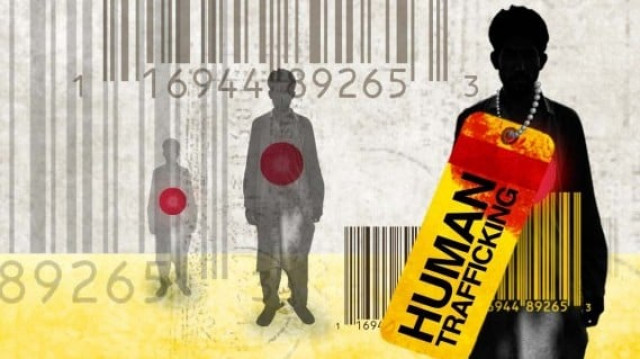Honey trapping seen as new trend in trafficking
Low conviction rate cited as challenge in tackling trafficking and bonded labour

Experts and stakeholders have said that prosecution and conviction rates remain big challenges while dealing with the twin-menaces of trafficking in persons and bonded labour in Pakistan.
They were speaking at a Provincial Stakeholders Working Group Meeting organised by the Sindh Human Rights Commission (SHRC) in collaboration with the Sustainable Social Development Organisation (SSDO) in Karachi on Thursday. The meeting aimed to strengthen efforts in combating trafficking in persons and bonded labour in Sindh.
SHRC Chairperson Iqbal Ahmed Detho stressed that the current federal rules of business apply only to Islamabad Capital Territory (ICT) and urged Sindh government to introduce its own regulations. He informed attendees that draft rules are currently with the Provincial Law Department and are accessible to the Provincial Home Department.
Detho referred to his visits to Darul Amans across Sindh and highlighted the need for regulatory legislation for these shelters, which SHRC plans to draft and present to the assembly. He also recommended prioritising one-stop facilities in high-need cities outside Karachi and called for improved monitoring of inter-departmental coordination committees. Detho also pointed out the lack of a daycare center within the Secretariat.
SSDO Executive Director Syed Kausar Abbas said prosecution and conviction rates remain significant challenges. He noted the rising trend of trafficking due to social media, making youth particularly vulnerable. Abbas also spoke about SSDO's efforts to raise local awareness and its collaboration with SHRC in training sessions with the Sindh police on trafficking in persons. He stressed the need for provinces to establish their own rules on trafficking and improve monitoring of district-level meetings.
Barrister Rida Tahir, a gender & child rights expert, addressed domestic violence cases and identified gaps in the FIR process and investigation procedures. SSP Abdul Raheem Sherazi stressed the need for inter-departmental collaboration in developing rules for the Trafficking in Persons Act. He also noted the extensive training conducted by SHRC and SSDO for lawmakers, government officials, police, and media personnel.
Shabana Kausar Shahani, Additional Secretary of the Law and Parliamentary Affairs Department, highlighted the importance of clear rules and procedures to support effective enforcement of trafficking laws. Ali Murad Baladi, Deputy Director of the Anti-Human Trafficking Circle at the Federal Investigation Agency, Karachi Zone, discussed the primary issues of sexual exploitation and forced labour. Wali Mohammad Qureshi, Deputy Director of the Women Development Department, said that women affected by trafficking could stay in Safe Houses temporarily, and for longer periods, they could be accommodated in Darul Amans under WDD. He added that WDD can assist in recovery efforts if a case falls under their jurisdiction.
Fatima Saima, Deputy Secretary of Foreigners and Human Rights, Home Department, Government of Sindh, stressed the need for multi-sectorial rules involving all relevant departments.
Lajwanti, a communication specialist at the good governance treaty implementation cell, Human Rights Department, Sindh, shared that their cell collects data from various departments for reporting to the relevant UN agency. Zulfiqar Abbasi, DSP of the Human Rights Cell in the Sindh police, reported 32 cases registered under the Prevention of Trafficking in Persons Act of 2018 and mentioned the Sindh Police's efforts to raise public awareness through FM Radio. Fareeda Tahir, Public Relations Officer at SHRC, proposed that the treaty implementation cell should also track cases of trafficking and bonded labor. It was agreed that SHRC would send letters to departments requesting information on the number of registered cases and meetings held at their head offices and district offices.



















COMMENTS
Comments are moderated and generally will be posted if they are on-topic and not abusive.
For more information, please see our Comments FAQ